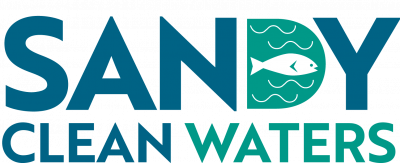City Announces Consent Decree Settlement; Path Forward on Wastewater Program
UPDATE: 9/11/2023
The Consent Decree is now officially in effect, having been signed by the US district court judge and officially entered on September 11, 2023.
ORIGINAL PRESS RELEASE: June 2023
The City of Sandy has invested tens of millions of dollars in recent years to ensure Sandy’s infrastructure needs are sustainably met, providing a solid foundation from which our community can work together to achieve our future goals and aspirations. It is in this spirit that the City of Sandy is announcing the completion of negotiations on a settlement with the Department of Environmental Quality (DEQ) and Environmental Protection Agency (EPA) that will resolve past violations and fines related to Sandy’s permit to discharge treated wastewater to Tickle Creek. While the City has made historic investments to upgrade and modernize our wastewater system under a program named Sandy Clean Waters, past violations incurred prior to the accomplishments of Sandy Clean Waters have remained unresolved. This negotiated Consent Decree, which the City Council approved at its meeting on June 5, 2023, will resolve all past claims DEQ and EPA have against the City, allowing Sandy to move forward with certainty and a clear path into the future.
The Consent Decree reduces Sandy’s civil penalty liability by orders of magnitude. Instead of a maximum possible civil penalty of well over $100 million for the violations incurred in the years prior to Sandy Clean Waters, and rather than a settlement payment of $15 million that would typically apply to a city in our situation, Sandy will pay only $324,300 in penalties. This drastically lower amount is based on the substantial efforts the City has made in recent years, and that we continue to make in good faith, to reinvest in the wastewater system and protect local watersheds.
Future of Wastewater System Improvement Program
In addition to the terms above, the Consent Decree largely formalizes actions the City is already taking, or plans to take in the near future, to modernize and expand our wastewater system to support our growing community:
- Repairs to the wastewater collection pipes to prevent groundwater inflow and infiltration (I&I)
- Repairs to the existing wastewater treatment plant
- Construction of new wastewater treatment infrastructure as identified in an amended Wastewater System Facilities Plan (currently being developed)
- Completion of a stress test, collection system modeling, and comprehensive capacity analysis of the wastewater system
- Compliance with a Capacity Assurance Program (CAP) that limits new wastewater connections, to ensure the system continues to operate within its capacity limits as new improvements are constructed
- Implementation of an asset management program for the wastewater system known as a Capacity, Management, Operation, and Maintenance program (CMOM), that will allow us to better manage, operate, and maintain our infrastructure and investigate and respond to problems
- Completion of a $200,000 Supplemental Environmental Project that will improve riparian health and water quality protection along Tickle Creek between 362nd Ave and Hwy 211
Limiting New Wastewater Connections to Stay Within System Capacity
As many community members are aware, the City made the decision to stop accepting new land use applications that propose new wastewater system connections in October 2022, using a mechanism in state law referred to as a moratorium. We said at the time that we were taking the action “in coordination with DEQ and EPA as part of ongoing enforcement proceedings under the Clean Water Act.” We are now able to clarify that the decision to limit new wastewater connections was an important step in arriving at the Consent Decree settlement with DEQ and EPA. The reason for limiting connections is to ensure that new units and demands on the wastewater system do not exceed the system’s capacity as we continue to construct improvements. The Consent Decree establishes a Capacity Assurance Program (CAP) limit on new wastewater connections; Sandy is able to use the moratorium as a tool to ensure continuing compliance with the CAP and ongoing sufficient capacity in the wastewater system.
Notwithstanding the limits on connections, there is still construction occurring in Sandy; that is because while no new wastewater connection applications are being accepted at this time, there are still properties that submitted land use applications prior to the moratorium taking effect. These properties with “vested rights” may connect during the moratorium period, provided the number of new units remains within the established capacity of the system. At its outset, the Consent Decree authorizes the City to add 300 new equivalent residential units (ERUs); the City plans to revise the current moratorium (which had a lower limit of 120 ERUs) in the very near future to reflect this higher allowance. Going forward, the results of the wastewater system stress test (currently in the data analysis phase) will determine Sandy’s CAP limit, though this number may be increased over time as more system capacity is demonstrated.
Next Steps
After City Council approval, the final step in this process will be for Oregon’s U.S. District Court to officially enter the decree after a 30 day public comment period.
As stated above, the Council plans to act in the very near future to raise the limit of the wastewater connection moratorium to reflect the higher allowance of 300 ERUs included in the Consent Decree.

